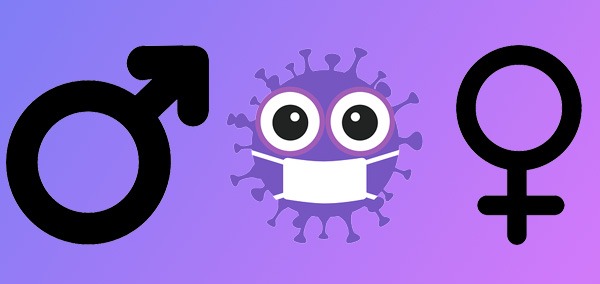Is Covid-19 different for men and women?
Hello everyone, sorry ‘Namaste everyone’, cause the whole world has just stopped shaking hands!
So, being a typical 90’s kid from India, I have seen everything throughout my entire teen days. Starting from the Indian Cricket team’s great journey and loss in the 2003 cricket world cup to winning it in 2011 and ‘demonetization’ being the latest, I thought I had seen almost everything possible. But as life surprises you in every way possible, it surely did again. The outbreak of ‘Corona Virus’ or ‘COVID-19’ has given a shock to the whole world.
Viruses don’t usually discriminate but it has been observed that the impact of Covid-19 is markedly different for the two major genders. The health, social and economic impact of the virus itself and the pandemic is different for men and women globally.
Risk of Infection and consequences
One big factor affecting the health behaviour of women and men differently is social norms, which have an impact on overall health. For example, men are more likely to smoke than women which puts men at greater risk of developing a serious disease if infected with Covid-19.
Higher mobility of men, as compared to women is also another likely reason why men are and will be more susceptible to contracting the virus.
Death Rates
The death rate comes as the first surprising difference! To date least 7 lakh people have lost their lives due to the COVID-19 pandemic. While novel coronavirus has equal potential to penetrate and spread irrespective of gender and age, the common notion has emerged that males are more susceptible to COVID-19. Even fatalities among the males are more as per the worldwide data of COVID fatalities. India is no exception.
Reasons for the differential impact

Well, it seems that the mystery has been decoded by the health community of the world. In a report published by them on May 10 in the ‘European Heart Journal,’ it was found that more concentration of Angiotensin-converting enzyme 2 or ACE2 in males as compared to females could be responsible for this. The report said, “The current pandemic coronavirus SARS-CoV-2 infects a wide age group but predominantly elderly individuals, especially men and those with cardiovascular disease.”
As per Philip Goulder, professor of immunology at the University of Oxford, one theory is that women’s immune response to the virus is stronger. “The immune response throughout life to vaccines and infections is typically more aggressive and more effective in females compared to males,” he says.
This is partly down to the fact that women have two X chromosomes, whereas men have only one – which is an important factor when it comes to fighting coronavirus infection.
“In particular, the protein by which viruses such as coronavirus are sensed is encoded on the X chromosome, as a result, this protein is expressed at twice the dose on many immune cells in females compared to males, and the immune response to coronavirus is therefore amplified in females.”
Philip Goulder, professor of immunology at the University of Oxford
Other impacts
Maternal Healthcare
Clare Wenham, an associate professor of global health policy at the London School of Economics and Political Science, and her colleagues researched the impacts of the Zika and Ebola outbreaks on men and women, and are now looking at Covid-19.
“We know from previous outbreaks, everything (including resources) goes to the outbreak, that means routine service provision is disrupted. And the first thing to go is maternal health services.”
Clare Wenham, associate professor of global health policy at the London School of Economics and Political Science
One consequence of the Ebola epidemic in Sierra Leone was a dramatic increase in maternal mortality. The World Health Organization has emphasised that maternity health services remain essential during the pandemic and that all women “have the right to high-quality care before, during and after childbirth”. But that is not always put into practice.
Domestic Violence
There have been reports about a surge in domestic violence globally during the lockdown imposed in light of the pandemic. “We know domestic violence normally happens in the home,” says Wenham. “Then you shut people you in the home in a stressful period when people don’t have money and can’t go to work. You don’t have to be a rocket scientist to see why that results in more domestic violence.”
Putting this in the Indian perspective, the National Commission for Women has seen a spike in the complaints it receives. While the commission would receive five complaints on average every day last year, this time it was nine complaints on average daily during the lockdown.
Within the first three weeks of the lockdown, the commission received 239 complaints of domestic violence. This was almost a 100% jump from the 123 complaints it received in the whole month leading up to the lockdown.
I hope you don’t need it but if you do, the National Commission for Women has a WhatsApp helpline number 72177-35372 to receive complaints of domestic violence.
Unemployment
One way that the current crisis is unusual is that, in a recession, men are often hit harder than women in terms of unemployment. This is because more men work in industries that are closely tied to economic cycles – such as construction and manufacturing. Women, conversely, dominate more in industries not tied to such cycles, such as healthcare and education. Women make up 70% of all health and social services staff globally.
Do let us know if you think there is any other differential impact that we might have missed out on.

